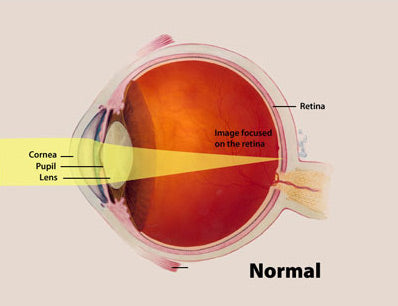Myopia
What is Myopia?
Myopia, or more commonly short-sightedness, is a common condition that affects over 1.5 billion people across the world! It occurs when you can see up to a certain distance but passed this, objects become fuzzy or blurry.
It is becoming more common in children all over the world - with the number of 12 year old Australian kids with myopia doubling between 2005 and 2011.


How can I tell if I have myopia?
Often people start to notice that road signs, TV subtitles or writing on the whiteboard in the classroom becomes difficult to see. Apart from blurry vision, sometimes people can have headaches and eye strain from struggling to see things that are far away.
Can it get worse and why?
Myopia can definitely get worse! Unfortunately, the complete reason why is still unknown.
Research shows that genetics seem to play a part - in other words, if your parents are short sighted, you will also most likely be short sighted.
Myopia has also been linked to spending lots of time on near activities such as phones, tablets and computers.
The incorrect glasses (over or under correction) can also cause Myopia to get worse at a quicker rate.
Should I be worried?
YES!
Increasing Myopia has been linked with eye conditions such as Retinal detachment, Glaucoma, Myopia macula degeneration and cataracts. Some of these can even cause blindness!
How do I treat it or stop it from getting worse?
Treatment options include:
- Orthokeratology - a specialty contact lens that is worn overnight, allowing good vision without the need for glasses during the day! It has been shown to be one of the most effective methods in myopia control
- Medicated Eye Drops - Atropine can be used to slow down the rate of myopia progression but must be instilled daily.
- Special soft contact lenses - eg) CooperVision MiSight
- Glasses with special lenses - eg) Hoya Miyosmart
After your eye test, we will take into consideration all factors to determine a treatment plan which is best for you.
